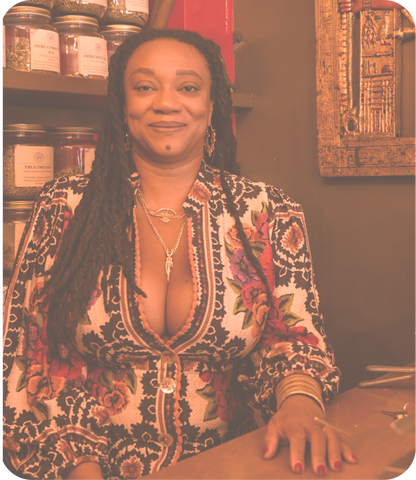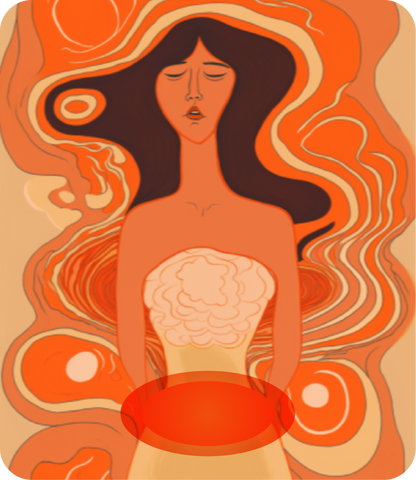
Healing the Misogyny in Gynecology
To loosely quote Honey Pot Company founder, Bea Dixon, “Vaginas have been poppin’ off since the dawn of time.”
She’s right.
Bacterial infections, menstrual cycles, birth complications, labor—it’s a delicate balance to maintain a healthy p*ssy. Women and people with wombs have called upon the wisdom and experience of feminine health workers such as midwives & doulas for millennia.
These healers, traditionally women, are the reason why we’ve evolved as a species to witness the 21st century.
Midwifery has been a practice present in every single civilization. Practitioners lend their knowledge and physical labor to expectant mothers. It stems beyond a profession; it is sisterhood embodied. These roles were often assumed by women and people with wombs, whether or not patriarchy dominated social order.
Today, especially in highly developed nations, the role has been replaced with a medical doctor known as a Gynecologist (a doctor who specializes in female reproductive health) or Obstetrician & Gynecologist a.k.a OBGYN (a doctor who specializes in pregnancy and female reproductive health).
When medicine became professionalized, and thus became a subset of patriarchal influence and control, this did not exclude the practice of gynecology and delivering babies. What was once regarded as a woman’s role and a safe space for mutual support from other women, now invites prejudice, “expertise”, and the absolute control of men.
Healing reproductive issues and providing medical care during pregnancy, labor and childbirth always had their risks. It was a frequent and sobering reality for women to die in childbirth before certain medical interventions were developed. It wasn't until the 19th century that women’s reproductive health was medicalized in America. Society went from midwives & women healers to visiting men for professional medical assistance. The result led to many outcomes, some good. Sutures, surgical techniques, and medical evaluations that prevent complications.
How could a practice solely founded to benefit the reproductive health of women be the source of their trauma? Examining the the study’s origin and founding practices lends a clear vision of consistent patterns. Black women, the direct descendants of gynecology’s initial test subjects, bear the brunt of healthcare inequities today. A lack of awareness of the potent historical narratives about Black women and their bodies restricts the field’s ability to grow and finally live up to its purpose. To repair this, it is crucial to examine the time period the practice emerged.
Related to: What is Vitalism?
Gynecology’s complicated past
Gynecology is inextricably linked to America’s momentous growth into an economic powerhouse.
As a rapidly developing nation with booming agricultural industries, America fueled its cash generation through slave labor.
In 1808, when the importation of African people was abolished, it became increasingly important to maintain high birth rates in slave populations to ensure a steady supply of labor. In addition to maintaining these populations, American doctors were determined to establish a respected field of gynecology that would rival Europe’s.
Pioneering gynecologists such as Dr. James Marion Sims (regarded as The Father of American Gynecology) and Dr. John Mettauer had access to the bodies of vulnerable populations of enslaved Black women.
The reality was that these women were subject to conceive children at rapid rates once they arrived at the age of childbearing. Their bodies would experience common injuries such as vesicovaginal fistulae, an unwanted opening that forms between the bladder and the wall of the vagina often caused by trauma such as difficult childbirth or sexual abuse.
These conditions made day-to-day life miserable for these women with symptoms like incontinence, foul odor, and pain. James Marion Sims boasted in one of his medical accounts, “There was never a time that I could not, at any day, have had a subject for operation.”
Gynecologists saw Black women as the perfect experimental body since they were widely accessible. Wide spread attitudes that these women were biologically stronger and impervious to experiencing pain in childbirth, or enduring hard labor, further supported the frequent experimentation on their bodies. Enslaved Black women had to endure their plantation duties and involuntarily participate as test subjects and medical assistants in the gynecological surgical procedures. No anesthesia was administered to these women and they would return back to their duties after recovering.
Enslaved Black women were forced to endure the brunt of experimental procedures that would advance the expansion of American gynecology. Despite the belief amongst doctors that Black women were biologically different from white women, the medical insights would be used to treat white women’s bodies as well. Although white women benefited from these medical advancements, they too did not escape the impacts of misogyny in the field.
By 1868, some gynecologists had begun to “cure” elite white women of nervousness or “neurasthenia,” a condition that allegedly weakened one’s nerves, and they did so through clitoridectomies, the removal of their clitorises. Today, this practice is know as female genital mutilation (FGM) and is widely condemned as a human rights violation.
This surgery was a manifestation of the chilling belief that nerves and uteri ruled women’s behavior. For upper-class white women, who were already burdened with the notion of their biological fragility, white male doctors felt obligated to cure them of any ill that might aggravate their sensitive natures. Clearly, this surgery would not have been performed on black women, enslaved or free, for the same reasons: Because white doctors perceived Black women as not having pathologies related to sensitivity (p. 115, Medical Bondage).
Related to: 6 Powerful Herbal Allies to Help Alleviate Stress
The impact of gynecology’s history on modern women
A long legacy of exploitation planted the seeds of inequities being revealed in today’s field of gynecology. These pains are most evident when cases of maternal mortality, and pregnancy-related death, are observed. The maternal mortality rate in the U.S. is the highest of other developed countries. According to the Centers for Disease Control and Prevention (CDC), Black women are 2-3 times more likely to die from complications of pregnancy or childbirth than white, Hispanic, Asian American and Pacific Islander women - despite their levels of income or education. Despite research that's found that 60 percent of all maternal deaths are preventable, a total of 658 women died of maternal causes in 2018. A leading cause of these unfortunate cases is due to the fact that patients’ complaints often fall on deaf ears.
“They're not listening to their symptoms or respecting their experience, especially complaints around pain. Giving birth can be a very fast-moving situation and when a woman is expressing pain and they're not being listened to, that window to intervene can be lost and result in death. That's unfortunately one of the ways we are hearing systemic racism influence the inequities that we see in maternal health” - Dr. Mary-Ann Etiebet for People magazine
“Pregnancy has moved from being a joyful event to something that many Black women now fear.. their experiences with our health system during and after pregnancy is many times not just devaluing for them as human beings, but it can be traumatic and result in death.”- Dr. Mary-Ann Etiebet for People magazine
Understanding the root causes of inequality in women’s health care is the first step to healing.
Listening to experiences, integrating research and consistent advocacy outline the path forward for women. Increased transparency around women’s reproductive health issues, such as Black maternal mortality & morbidity, creates the healing required to ensure influences of the past don’t linger. The change-makers to create this reality is varied with health organizations, government initiatives, and celebrity advocates devoting their voices to eradicate painful & inhumane experiences for the women underserved by the healthcare system.
Maternal Health Care Organizations
Organizations such as Black Mamas Matter Alliance (BMMA) and MoMMas Voices are doing the work. BMMA primarily serves as a platform to highlight Black woman-led initiatives working to address the issues of maternal health disparities and inequities in addition to coordinating support to organizations and maternity care workers, such as doulas and midwives, with training and capacity building.
Other groups such as MoMMas (Maternal Mortality and Morbidity Advocates) Voices, work intimately with individuals who have had negative birthing experiences. MoMMas Voices serves as a maternal health patient advocacy coalition to “amplify the voices of those who have experienced pregnancy and childbirth complications or loss - especially those who have been historically marginalized - ensuring they are equipped and activated as partners with providers and researchers to improve maternal health outcomes.”
This unique partnership ensures that their lived experiences are used to improve patient care provided. They’re carefully considered and built into quality improvement practices/protocol to prevent recurring experiences. MoMMas Voices tackles the racial disparity in maternal health in addition to healthcare delivery, inadequate research funding, and other factors relative to subpar medical treatment in pregnancy and the post-partum period.
Federal Initiatives for Maternal Health
The efforts made by national & grassroots organizations to provide quality healthcare to women has bolstered them with the information, resources and network they need to feel supported. The United States Federal Government has joined efforts to expand awareness beyond expectant mothers to the national population. In 2021, the Biden-Harris Administration officially proclaimed April 11-17 as Black Maternal Health Week. Though this time has always been regarded for the purpose of raising awareness to this health concern, the White House's recognition has deepened the national conversation.
In partnership with Merck pharmaceutical company’s Merck for Mothers program, the CDC launched its HearHer campaign to improve the communication between mothers and their healthcare providers to mitigate any instance where severe symptoms and warning signs may be overlooked. In addition, the current administration has taken various actions to complement the cause. Most notably, $200 million has been invested to:
- Implement implicit bias training for healthcare providers
- Create State pregnancy medical home programs
- Bolster Maternal Mortality Review Committees
- Expand the Rural Maternity and Obstetrics Management Strategies (RMOMS) program
- Help cities place early childhood development experts in pediatrician offices with a high percentage of Medicaid and Children’s Health Insurance Program patients
Inequality impacts all women
Women’s mistreatment when seeking medical treatment is an intolerable reality globally. It is unfortunate that there is more work to be done to establish widespread equality, but the more Black women raise their voices, the better for all women. Breaking the silence surrounding the negative medical experiences women have with their gynecologists uplifts others to utilize their own voices.
In the past years, celebrity mothers such as Serena Williams, Beyoncé, and Tatiyana Ali publicly recalled their health complications in labor and postpartum recovery. The historical accounts discussed and recent studies on racial bias linked to poor pain management methods become more tangible and magnified when you examine the experience of tennis star, Serena Williams. Williams, who is medically prone to clotting, endured a pulmonary embolism (clotting that blocks arteries in the lungs). She had to urge her doctors to conduct a CT scan after her pain complaints were dismissed as confusion from her pain medication. Her doctor was still in disbelief and conducted an ultrasound before giving her a proper CT with contrast which diagnosed her condition and led her to have a life-saving surgery. Without her relentless self-advocacy on behalf of what she was feeling, the state of her life could have been jeopardized.
Related to: Both Sides, Now: Bi Visibility + Cannabis CultureThe future is female
Ensuring that the experience women have in their gynecological visits is a positive one informs their quality of life. Ask questions and genuinely listen to the experiences of your female elders, colleagues, and loved ones whilst seeking gynecological care, whether wellness or pregnancy-related. The process to disassociate pain and inhumane intrusion with GYN visits takes place when women speak their truth amongst one another.
Did their healthcare practitioners listen wholeheartedly to their symptoms? How were their birthing experiences? Do you recall a time when your negative symptoms were dismissed?
You’d be surprised to discover what the people who surround you have encountered medically, or what personal experiences may have overlooked. Check in on the expectant mothers in your lives. Whether it’s their first child or fourth, check and see if they feel well or if they feel safe with their doctor.
Women will not put down the reins in any facet of their lives, especially when it comes to the high-quality care & respect they deserve in their healthcare. When this attitude finally ripples from every single grandmother to daughter to granddaughter, we awaken several generations of healing.
Sources
The White House (2021, April 13). FACT SHEET: Biden-Harris Administration Announces Initial Actions to Address the Black Maternal Health Crisis. Https://www.Whitehouse.gov. https://www.whitehouse.gov/briefing-room/statements-releases/2021/04/13/fact-sheet-biden-harris-administration-announces-initial-actions-to-address-the-black-maternal-health-crisis/














































